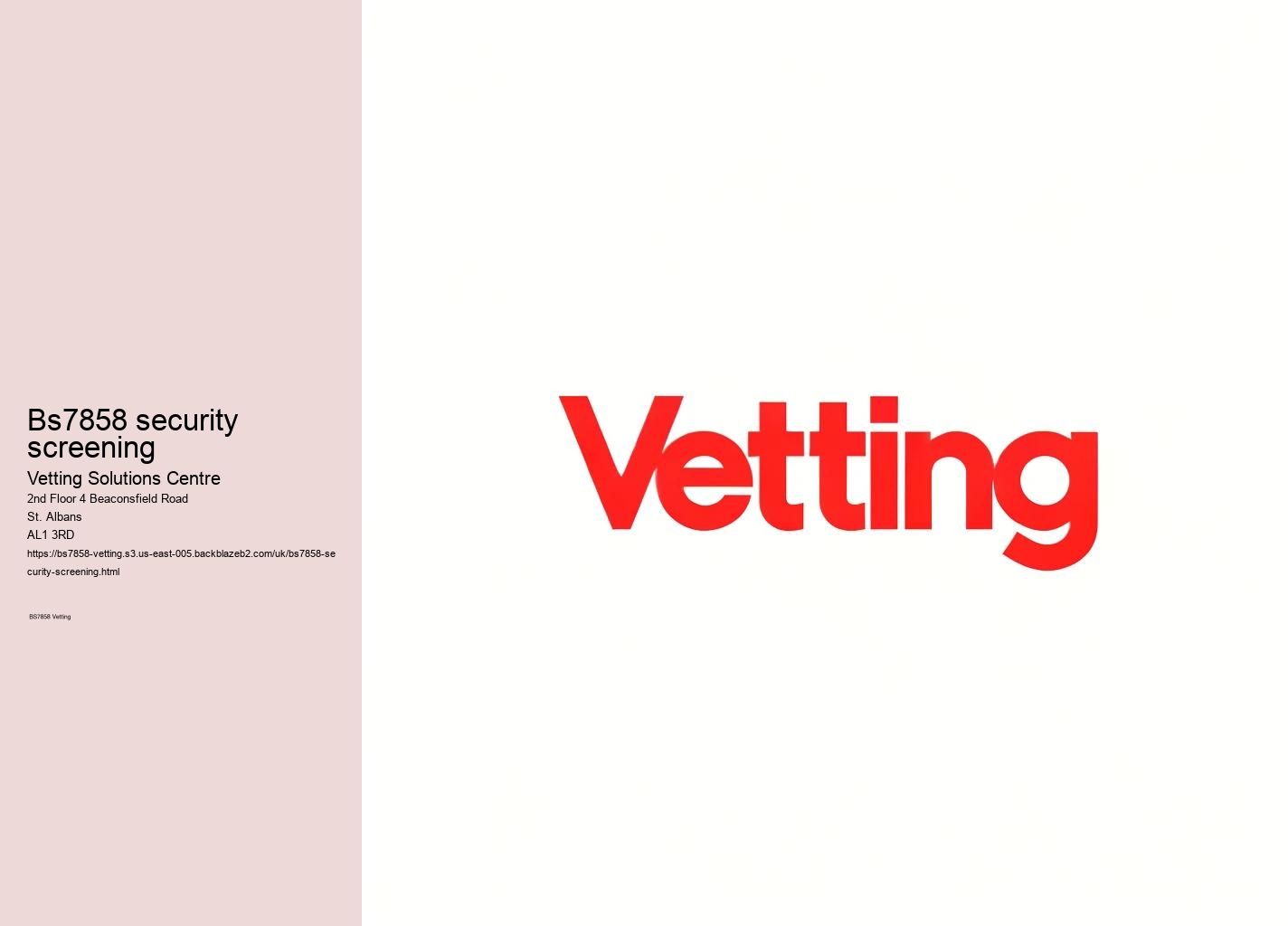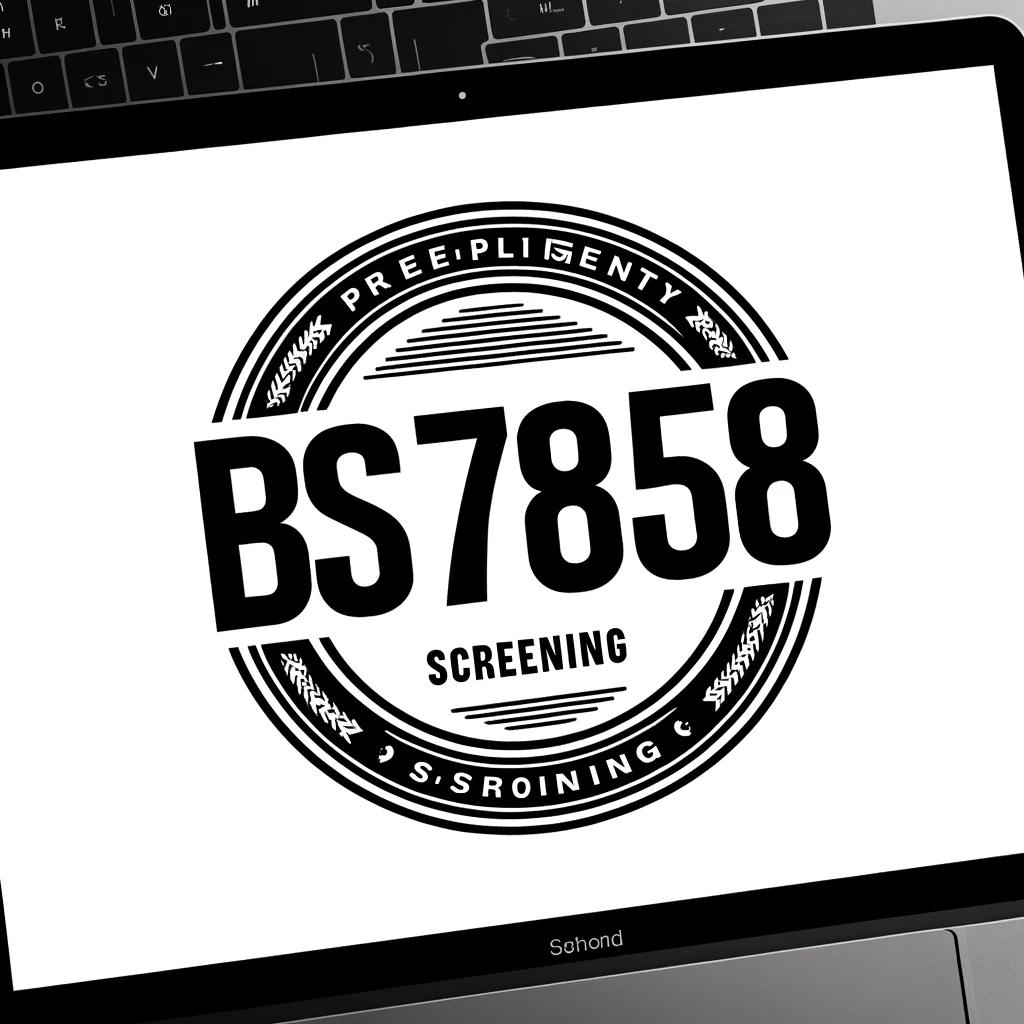

What Is the British Standard for Security Screening? You're wondering about the UK rules for security checks during hiring. This is a set of rules that make sure safety is maintained when hiring employees. It includes things like confirming someone's identity, checking their financial background, looking at criminal records, and checking international watchlists.
Following these rules is very important for getting accreditation and they're used in many different industries. These rules also say that this data must be kept for 7 years after a person leaves a job.To help meet these standards, you might want to think about using a professional service that specializes in these checks.
What Is the Employment Gap for Bs7858?When you're talking about the employment gap, it means any time longer than 31 days that you weren't working. This could be when you didn't have a job, were working for yourself, or were in between jobs.
It's very important for bosses to check any of these gaps themselves to make sure every-thing is clear and they can trust you. Checking these employment gaps is a very im-portant part of doing a thorough background check.
Using BS7858:2019 can be simple. With Vetting Solutions Centre, you can be sure of an efficient, precise, and affordable vetting process.You won't have to worry about following rules or handling a lot of paperwork.
It's time to improve your security, easily follow BS7858:2019, and focus on what's im-portant - your business. Why not contact checkback.co.uk on 0144 281 6333 or stop by at Suite E14, IMEX Building, Hemel Hempstead, UK?
BS7858 and Security Clearance (SC) are terms often mentioned in the con-text of background checks and security procedures in the UK, but they refer to different standards and requirements. Here’s a breakdown to explore their differences, applications, and importance in ensuring the safety and integrity of organizations and national security.
Understanding BS7858 BS7858 is a British Standard that outlines the best practice for security screening of individuals employed in a security envi-ronment. It's not limited to any specific sector but is widely adopted in in-dustries where employees have access to sensitive information or are re-sponsible for the security of physical or intellectual property. This standard specifies the processes for verifying the identity, criminal record, and finan-cial history of potential and existing employees. It aims to ensure that indi-viduals in positions of trust are screened to a high standard to mitigate the risk of theft, fraud, or any activity that could harm the business or compro-mise security.
The Nature of Security Clearance (SC) Security Clearance, on the other hand, is a government procedure used primarily within the UK’s public sec-tor and industries related to national security. SC is designed to provide a certain level of assurance at a point in time as to an individual's trustworthi-ness, integrity, and reliability. It's typically required for individuals who have access to sensitive government information or assets. The process involves a more in-depth background check than most commercial standards, in-cluding checks on financial position, previous employment, and, significant-ly, an individual’s national loyalty and potential foreign influences.


Key Differences The primary difference between BS7858 and SC is their scope and application. BS7858 is a commercial standard that can be applied across various sectors, focusing on the screening process itself, without delving deeply into an individual's allegiance or susceptibility to foreign in-fluence. SC, however, is more rigorous, with an emphasis on national securi-ty and is generally a requirement for roles that involve access to classified information or sites.
BS7858 Screening Process The BS7858 screening process includes several key elements: identity verification, employment history checks for the last five years, financial checks (including bankruptcy and CCJ searches), and criminal record checks. This standard requires employers to also obtain character references and conduct a risk assessment to determine the indi-vidual's suitability for a position of trust.
SC Screening Process The SC process is more extensive and can take sever-al months to complete. It involves a detailed application form that covers an individual’s background, family history, financial status, and personal connections. Interviews may also be part of the process, and applicants must have been a UK resident for a certain period, typically five years, be-fore applying. This is to ensure that adequate checks can be carried out.
Why These Checks Are Important Both BS7858 and SC are critical for miti-gating risks within organizations and national security frameworks. By en-suring that individuals in sensitive roles are thoroughly vetted, organiza-tions can protect themselves against internal threats, data breaches, espio-nage, and other security risks. These checks are not only about safeguarding information but also about maintaining public trust, especially in sectors re-lated to national security, finance, and critical infrastructure.
Compliance and Best Practices Organizations implementing BS7858 must ensure they adhere to the standard’s requirements, which may involve de-veloping internal policies, training staff involved in the vetting process, and keeping detailed records of checks carried out. Similarly, entities required to implement SC must navigate the process according to government guide-lines, often involving liaising with the Defence Vetting Agency (DVA) or oth-er relevant bodies. Best practices include maintaining up-to-date knowledge of any changes in the standards and ensuring that vetting pro-cesses are conducted transparently and fairly.
Conclusion While BS7858 and SC serve the shared goal of ensuring the reli-ability and integrity of individuals within sensitive roles, they cater to differ-ent needs and sectors. BS7858 provides a framework for commercial entities to conduct thorough security screenings, whereas SC is a more specialized and stringent process aimed at protecting national security. Both are indis-pensable tools in their respective domains, highlighting the importance of comprehensive vetting procedures in today’s security-conscious environ-ment.


Understanding the nuances between these two can help organiza-tions choose the appropriate level of background checks and security clear-ances for their specific needs, ultimately contributing to a safer and more secure operational landscape.
The legal underpinning of BS7858 checks in the UK involves a combination of privacy, employment, and data protection laws. BS7858 is a standard that provides guidelines for the security screening of individuals working in a secure environment or in positions where they handle sensitive information. While BS7858 itself is not a law, its implemen-tation is influenced by several legal frameworks to ensure that the screening process is conducted legally and ethically.
The Data Protection Act 2018, which incorporates the UK General Data Protection Regu-lation (UK GDPR), is central to the legal underpinning of BS7858 checks. This act gov-erns how personal information is processed, requiring that data collected during screening is processed lawfully, fairly, and in a transparent manner. Organizations must ensure that personal data collected for the purpose of BS7858 screening is relevant, necessary, and not excessive for the purpose of ensuring security and suitability for a position.
The Human Rights Act 1998, which incorporates the European Convention on Human Rights into UK law, also plays a role. Specifically, Article 8 – the right to respect for pri-vate and family life – must be considered when conducting BS7858 checks. Employers need to balance the individual's right to privacy with the organization's need to con-duct thorough screening to maintain security.
The Rehabilitation of Offenders Act 1974 is relevant when criminal record checks are part of the BS7858 screening process. This act allows some convictions to be consid-ered 'spent' after a certain period, meaning they do not need to be disclosed to em-ployers, with certain exceptions. For roles subject to BS7858 screening, however, em-ployers may be entitled to request details of spent convictions, given the sensitive na-ture of the positions involved.
Employment laws, including those relating to discrimination (Equality Act 2010), must be adhered to during the BS7858 screening process. Employers must ensure that their screening processes do not discriminate against candidates on the basis of race, age, sex, religion, disability, or other protected characteristics. The screening process must be consistent, fair, and applied equally to all candidates to ensure compliance with em-ployment law.
